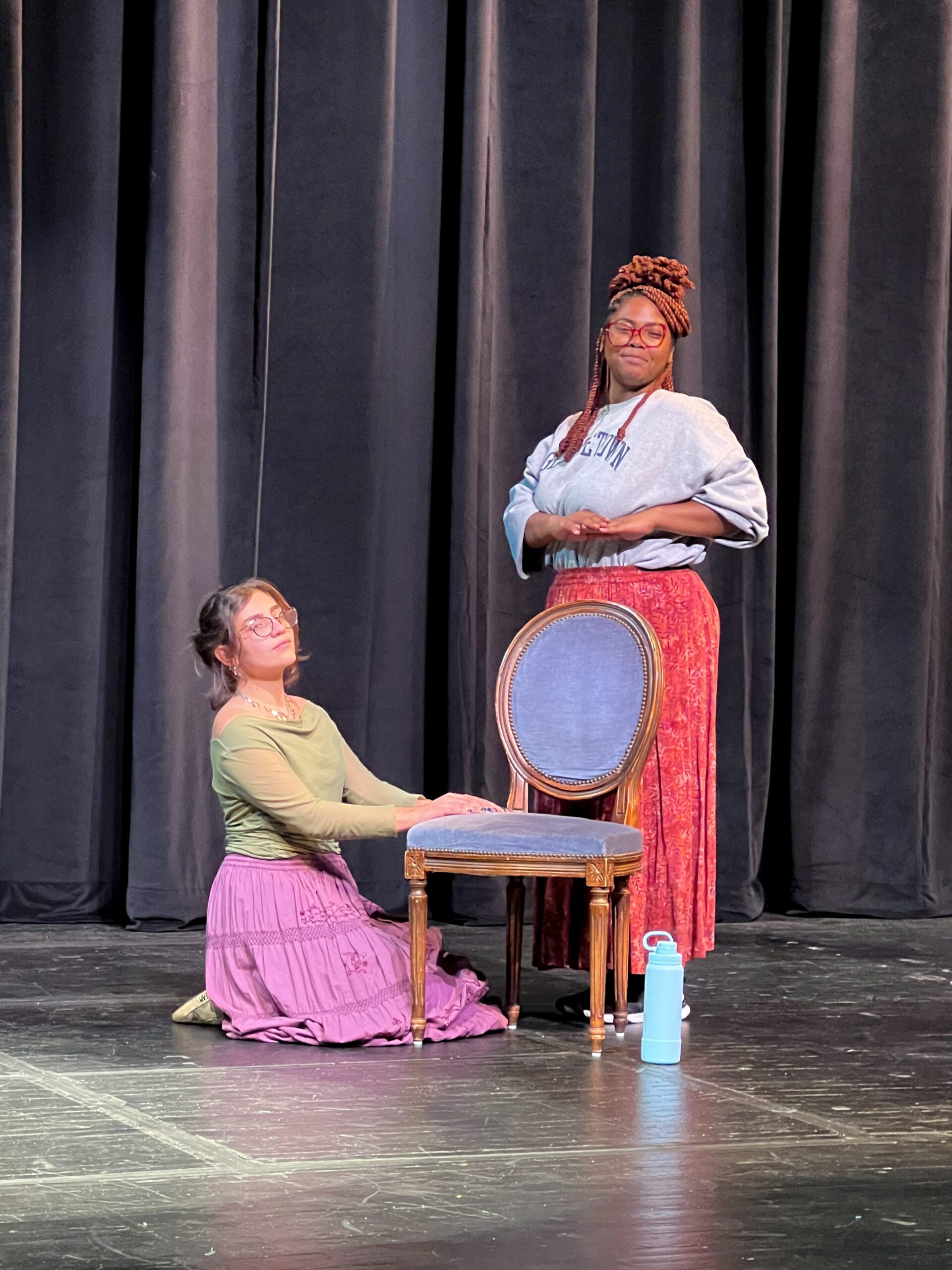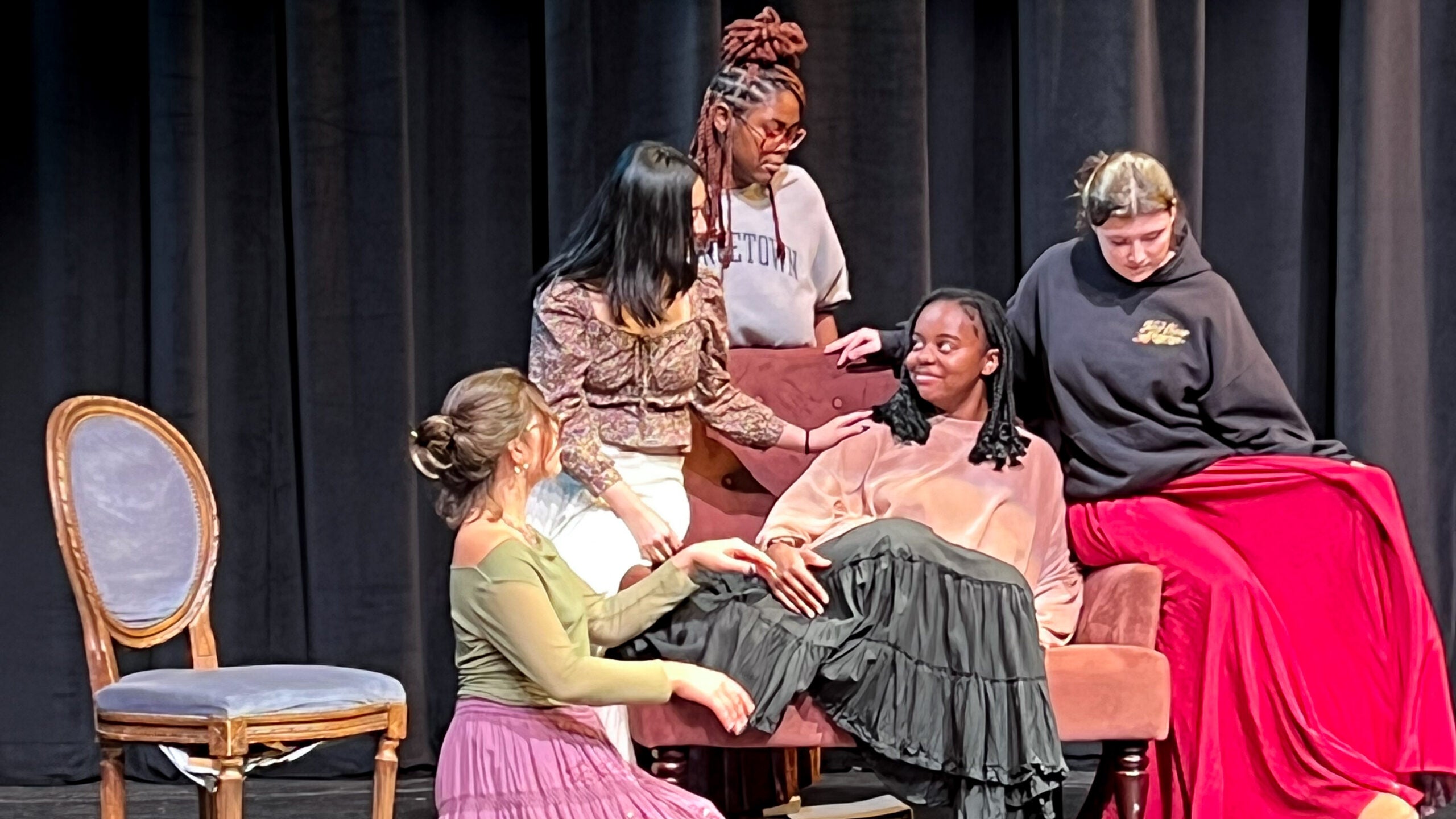Did the Suffragist Movement Rely on Racism? New Play Explores Hidden History
An original play from award-winning novelist and playwright Jennifer Natalya Fink, dramatizes tensions between two titans of the suffragist movement – Jane Addams and Ida B. Wells-Barnett – over the role of racism and classism in the fight for the vote.
“‘Bitter Flower’ is about a profound conflict between Jane Addams and Ida B. Wells-Barnett,” explains Fink, a professor in the Department of English and core faculty in the Disability Studies Program. “The play asks us to confront the racist foundations of the women’s suffrage movement so a truly egalitarian movement can flower.”

Grounded in a historical moment whose realities are often obscured or forgotten, “Bitter Flower” is a riveting show that will have audiences rethinking their perceptions of the suffrage movement and the continued legacies of racism and classism in today’s social justice movements.
“‘Bitter Flower’ brings two powerhouses to life,” Fink says. “Jane Addams was an immense force in American politics – the first American woman to win a Nobel Prize. She’s a leading suffragist, she’s a socialist, but she’s relying on racist rhetoric in her advocacy.”
The work highlights how tenuous and contentious political alliances were in American politics. It explores the ways that power imbalances affected who was heard and how far their voice traveled.
“Ida B. Wells-Barnett was born in slavery,” says Fink. “She became a publisher and a journalist, founded the NAACP with Frederick Douglass, helped start the civil rights movement and fight lynching and founded the Black women’s suffrage movement. Yet few learn about her in American public schools.”
From Seed to Flower
Fink began working on the project more than three years ago to commemorate the centennial of the 19th amendment. With artist Julia Laffin, Fink developed a performance piece in 2020 entitled ‘UNDERBELLY’, which involved dual-sided sashes each representing individual suffragists.
“We created 50 sashes corresponding to real suffragists – 25 white women and 25 Black women, with their names on one side and their forgotten history on the other,” says Fink. “In the case of the Black women, their unheralded achievements and, in the case of the white women, their bitter truth – that this was a racist movement.”
After delving into the history of the suffragist movement, and finding more than she’d expected, Fink couldn’t shake the feeling that there was more to the story. After reading dueling editorials written by Jane Addams and Ida B. Wells-Barnett centering on lynching, racism and suffrage, Fink decided to take their public feud and dramatize it as a personal tête-à-tête. “Bitter Flower” is the product of an interdisciplinary collaboration between Fink and other artists, practitioners, thinkers and students.
“Once I read the script, I saw that Jennifer had included these puppeteered hats, which functioned as a Greek chorus commenting on each side of the debate that Ida B. Wells-Barnett and Jane Addams are having,” recounts director Anita Gonzalez. “I envisioned them as an ensemble of actors who would be able to use song and gestural language to comment on the conflict between these two women.”
Working with Jonathan Girling, a Broadway and Royal Shakespeare Company composer, the team has brought a strongly emotive, musical component to the production.

“In one scene, we have a character composing a letter,” says Gonzalez, a professor in the Department of African-American Studies and co-founder of the Racial Justice Institute. “Jonathan has punctuated the beats of the letter with an incredible sound score to bring emotion and intensity to each word.”
Set in the waning days of the Gilded Age, “Bitter Flower” is brought to life by costumes and ornate hats, which are now worn by the actors instead of puppeteered.
“We researched Edwardian and turn-of-the-century fashion,” explains assistant director and costume coordinator Daisy Steinthal (SFS’23). “We designed the looks for each character, and built costume pieces, most notably the hats our ensemble members wear.”
Steinthal, a culture and politics (CULP) major with minors in theology and economics, has been excited to work alongside Gonzalez, whose work has appeared on PBS national television, at Lincoln Center Out-of-Doors, the Tribeca Performing Arts Center and a slew of professional and academic spaces.
“Assisting Anita has been an incredible experience,” says Steinthal. “Each rehearsal, I learn more about directing through working alongside her and with our actors. I appreciate the relationship we have built, and I love the chance to hear about and discuss other projects she is working on across the country.”
After each performance, audience members will be invited into a tea parlor staged by the artistic team to facilitate conversations around the historical realities of the suffrage movement with Georgetown experts in history, gender and justice and disability studies.
The show will run from November 16-19. Tickets are available through Eventbrite.
-by Hayden Frye (CAS’17)
